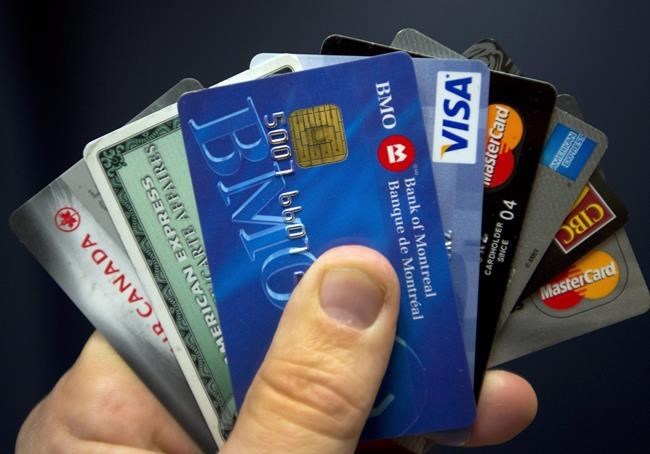As 2022 comes to a close and the cost of living continues to climb, many Canadians are looking for ways to cut back on spending — and some are looking to trim down on subscriptions.
But with subscription services offered in almost every category these days, it can be hard to keep track of exactly how much you're spending on a monthly basis.
Heading into the new year, freelance journalist John Loeppky took stock of his finances and noticed a lengthy list of regular credit card charges.
“It can very easily get away from you," he said.
For both business and personal use, Loeppky had lost count of how many subscription services he was paying for. While many of them are services he, needs, uses often or values enough to keep, there were a few he wasn't using and a few he had forgotten to cancel.
It's tempting to see a charge on your credit card and tell yourself you'll deal with it later, he said, but when you actually do the math, all of these subscription payments add up to the equivalent of a few mortgage payments every year.
“It’s that thing where it’s a death by a thousand cuts."
Subscriptions aren’t a new concept, but these days you can subscribe to almost anything. You can get wines of the month, novelty cereals, or even specific products like moisturizer on a recurring basis. You can subscribe to get regular deliveries of shampoo and conditioner, dog treats, and printer ink. And then there are the less tangible subscriptions, like online storage, password managers and — perhaps ironically — budgeting apps.
One of the most ubiquitous subscription categories is, of course, entertainment. An October survey by the Angus Reid Institute found that more than four in five Canadians have at least one streaming service, up from around half in 2016, as more and more shift from cable and satellite TV to digital options. (The survey also found that some Canadians were cutting back on streaming subscriptions in response to the rising cost of living.)
These streaming subscriptions might not cost much individually, but Angus Reid found that 23 per cent of Canadians have three, while another 17 per cent have four. Say you had the basic packages for Netflix, Crave, and Disney+; you’d be paying more than $40 a month on those services alone.
Add on a meal kit for two, razor blades, a personal interest subscription box, Spotify or Apple Music, cloud storage, a Patreon subscription for your favourite podcaster, a couple of news outlets, an audiobook subscription, and the premium tier of a food delivery app — you could be looking at another $200 or more per month.
In fact, there are so many subscription options that there are now apps to help you manage your subscriptions (and some of those apps are themselves subscriptions).
Companies seem to have caught on to how lucrative the subscription model can be, said Jessica Moorhouse, a money expert and host of the More Money Podcast, in an email.
“Like many other Canadians, I've definitely fallen into the trap of having pretty much every TV subscription available,” said Moorhouse, adding that she also subscribes to Spotify and a fitness app.
Because she tracks her spending, Moorhouse finds herself with plenty of opportunity to review her monthly costs and cut the ones that aren't worth it.
Often people don’t even know how many subscriptions they have or how much they’re costing on an annual basis, she said.
If you’re trying to cut back on subscriptions, Janet Gray, an advice-only financial planner with Money Coaches sa╣·╝╩┤½├Į said you should see whether any of the ones you have offer a “pause” option. That way you can try going a few months without them to see whether you really miss them.
While some subscriptions offer a discount if you pay for a year, Gray recommends taking the monthly option if you're having trouble keeping track. That way you can better monitor your subscription costs and avoid a nasty annual surprise, she said.
If you’ve signed up for a free trial, Gray said you should put a calendar reminder right away to unsubscribe so you don't end up with a surprise charge.
And while many people put these payments on their credit card, if you’re having a hard time with debt or you find it a little too easy to say yes to subscriptions because they’re on credit, she said you can try putting subscription payments on your debit card instead.
You can also look into family versions of subscriptions like Netflix or Spotify to help everyone save a few dollars.
If you feel the urge to subscribe to something, Moorhouse recommends taking some time to think about it and how it might fit into your budget. You can even write down what you’re interested in subscribing to and consider why — was it an influencer post? An ad? A friend’s recommendation?
“This way, you can look back over time and see a pattern. For example, if there's a particular influencer you follow and you find they are really effective in influencing you to buy stuff, maybe it's time for you to hit mute or unfollow to take back control of your spending.”
If you want to get a full picture of all your subscriptions, Moorhouse said you should look at a year’s worth of bank and credit card statements so you don’t miss anything.
“The questions you need to ask yourself are ‘Can I afford this?’ and ‘Do I still get value or joy from this?’” she said. If the answer is no, cut the subscription — and you’ll likely not miss it.
“Moreover, if your financial situation improves and you do really miss it as part of your life, you can always re-subscribe. Cutting something from your budget doesn't have to be permanent.”
This report by The Canadian Press was first published Dec. 29, 2022.
Rosa Saba, The Canadian Press



